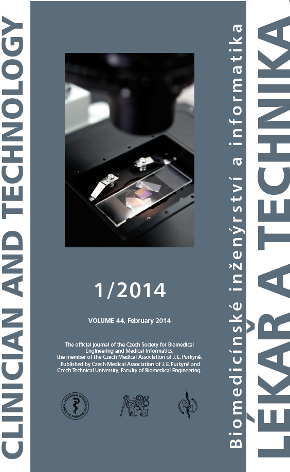THE EFFECT OF DOCETAXEL ON MOLECULAR MELTING PROFILE OF DNA EXTRACTED FROM HUMAN BREAST ADENOCARCINOMA MCF-7 CELLS
Keywords:
MCF-7 cell line, high-resolution melting analysis, docetaxelAbstract
Aim: The aim of this study was to evaluate the genotoxic effect of docetaxel on the human adenocarcinoma MCF-7 cells to detect genetic variations and discover potential associations between the drug and the genotoxic damage of MCF-7 cells. Materials and Methods: High resolution melt analysis (HRM) of genomic DNA isolated from MCF-7 cells was used. Two primers of MDR1 gene were selected: 5´-TGGGGCTTTTAGTGTTGGAC-3´, 5´-TGTGGAGAGCTGGATAAAGTCA-3´. Results: The significant alterations in the melting temperature Tm of DNA treated with docetaxel in the concentrations of 1 μmol/l and 250 μmol/l were observed. Comparing G+C/A+T ratios the increase of the relative content of G, C was detected. Minor changes of the nucleotide content were observed when compared the sequences of DNA for the control and the docetaxel treated group. Conclusions: Using MDR1 primer pairs, our results confirmed that MCF-7 cells are susceptible to genomic DNA instability when exposed to docetaxel.Downloads
Published
Issue
Section
License
Copyright (c) 2017 Marianna Trebuňová, Ján Rosocha, Galina Laputková, Mario Jančošek, Jozef Živčák

This work is licensed under a Creative Commons Attribution 4.0 International License.
Authors who publish with this journal agree to the following terms:
- Authors retain copyright and grant the journal right of the first publication with the work simultaneously licensed under a Creative Commons Attribution License (https://creativecommons.org/licenses/by/4.0/) that allows others to share the work with an acknowledgment of the work's authorship and initial publication in CTJ.
- Authors are able to enter into separate, additional contractual arrangements for the non-exclusive distribution of the journal’s published version of the work (e.g., post it to an institutional repository or publish it in a book), with an acknowledgment of its initial publication in this journal.
- Authors are permitted and encouraged to post their work online (e.g., in institutional repositories or on their website or ResearchGate) prior to and during the submission process, as it can lead to productive exchanges.
CTJ requires that all of the content of the manuscript has been created by its respective authors or that permission to use a copyrighted material has been obtained by the authors before submitting the manuscript to CTJ. CTJ requires that authors have not used any copyrighted material illegally, as for example a picture from another journal or book, a photo, etc. It is the author’s responsibility to use only materials not violating the copyright law. When in doubt, CTJ may ask the authors to supply the pertinent permission or agreement about the use of a copyrighted material.
The opinions expressed in CTJ articles are those of authors and do not necessarily reflect the views of the publishers or the Czech Society for Biomedical Engineering and Medical Informatics.


